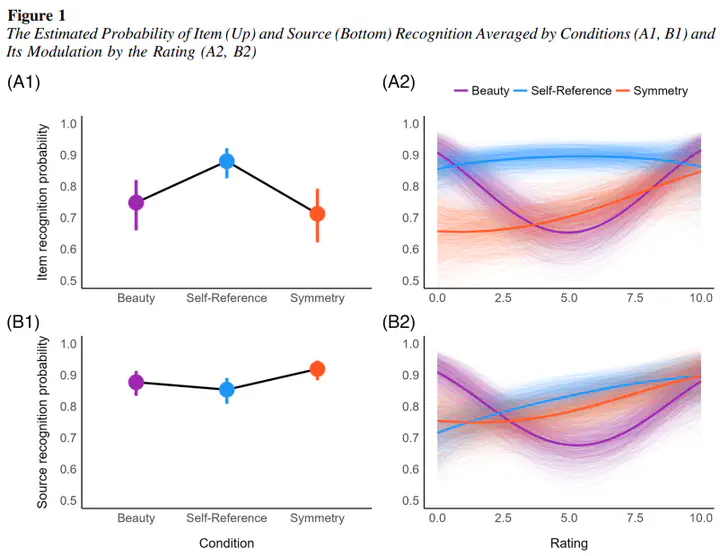The beauty and the self: A common mnemonic advantage between aesthetic judgment and self-reference

Abstract
A long-lasting debate in the field of esthetics is the extent to which beauty is inherent to the object of appreciation or to the subject contemplating it. Several studies suggest that physical features of an artwork influence esthetic judgment. Nevertheless, this objectivist approach fails to explain the idiosyncratic nature of esthetic experiences (AE). Recent models propose a multiprocess account of AE, integrating a subjective evaluation based on self-referential processing. Nevertheless, behavioral data supporting this hypothesis is scarce. We took advantage of the self-reference effect (SRE) in memory to test the hypothesis that esthetic judgment is based on self-related processes. We predicted that if esthetic judgment recruits self-referential processing, encoding artworks in this condition should produce a similar mnemonic advantage as the SRE. We showed that at least paintings receiving extreme esthetic judgments were as well recognized as those encoded in self-reference condition.